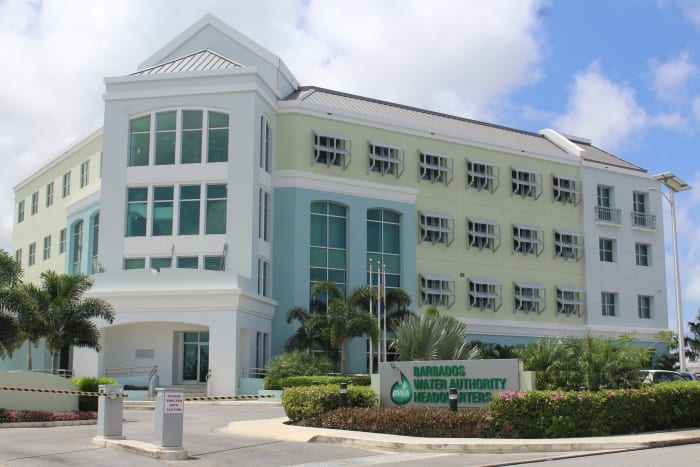Barbados Water Authority to Undergo Restructuring, Says Prime Minister

The Mottley administration plans to restructure the Barbados Water Authority to improve its efficiency and effectiveness in providing water services to the country.
By Ryan Gilkes
The Mottley administration intends to restructure the Barbados Water Authority (BWA), the Prime Minister has told business leaders, likening the water utility and regulator to a “salmon tot retriever or a good ol’ common dog” that is unable to excel as a state-owned enterprise in multiple roles.
“If ever there was a need for an entity to be world-class, it has to be the Barbados Water Authority and, therefore, I am giving the country the commitment that over the next few years, we’ve brought some of our very best and brightest brains in the country to be able to come to the table to deal with the management of the board and to ensure that we can make the transition because without water we have nothing,” she said.
She made the remarks to the Barbados Chamber of Commerce and Industry during its annual business luncheon and discussion forum at the Lloyd Erskine Sandiford Centre.
Mottley hinted at the eventual breakup of the institution in a colourful, homespun summation of the national water and sewerage corporation that in 1980 replaced the Waterworks Department which regulated the extraction and distribution of potable water since the 1890s.
She did not elaborate on what agencies would be formed out of the separation of the authority’s regulatory powers, sewerage services, and finding, extracting and distributing water, nor did she state which, if any, of the resulting entities would be in private sector hands.
“We have a single entity that is supposed to be regulatory, that is supposed to be distribution, that is supposed to be augmentation, and that is supposed to do research as well, and everything. You end up with a salmon tot retriever or a good ol’ common dog, as [you’re] not . . . able to secure excellence in each of the four areas. So governance has to be addressed frontally,” Mottley said.
She indicated that the mission of retired business executives David Wright and Dodridge Miller as the BWA’s chairman and deputy chairman respectively is “to get to the bottom of that”.
The prime minister added: “A lot of the systems that we have, tens of millions of dollars, were spent by the last government and we are no better in respect of some of the systems, particularly the IT systems, because it is a headache so we are getting to the bottom of that.”
But one of the more vital areas identified for urgent attention was water augmentation, she said, noting that with the climate crisis, pinpointing additional sources of water – whether from groundwater resources or desalination – will be critical.
She said: “You have heard much debate locally, and I want to address it too, about the debt for climate swap that we’re doing with the upgrading of the South Coast Sewage Treatment Plant, and will therefore be able to have tertiary treated water to replenish our aquifers and for agricultural purposes.
“For those who use disparaging terms for what we are doing . . . we will be using cleaner water than is going in the aquifer now and cleaner water than what is irrigating the crops now because you will be treating the water rather than using and letting untreated water go towards those purposes.”
Alluding to Barbados’ landmark debt-for-climate deal, she said the country was saving money as it was repurchasing $600 million of its debt to finance the sewage project
“This will allow us to help finance that plant over the next 18 months to two years with the help of the Inter-American Development Bank which is taking 40 per cent of it,” she said. “The European Investment Bank which we got the clearance from then when I was in Europe last month and also the Green Climate Fund (GCF) which takes a little longer and we may have to have some bridging finance to make up for the time, but the beauty of the GCF is that it is grant money so that will help us replenish the acquirer in St Philip and also will help us deal with agriculture.”
(RG)


